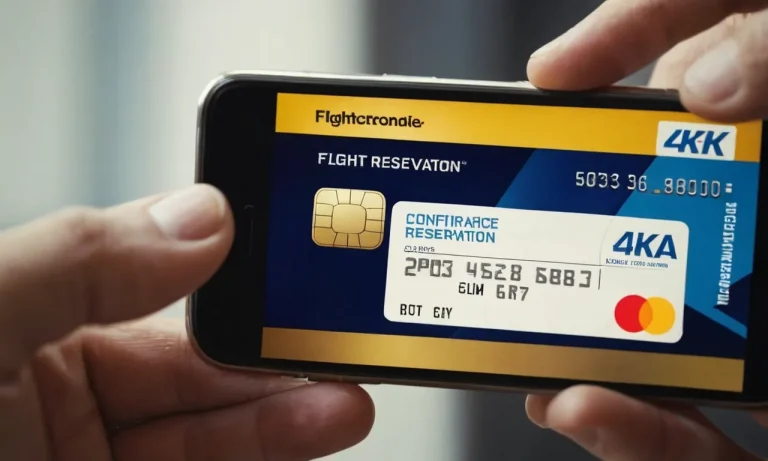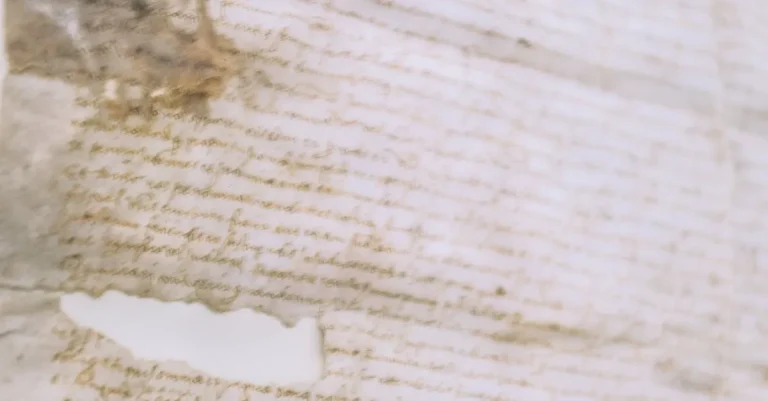Getting pulled over for speeding can be an unnerving experience, especially if it’s your first ticket. You may be wondering what happens next and how much it will cost you.
This comprehensive guide will walk you through the process and penalties for a first speeding ticket in California.
If you’re short on time, here’s a quick answer: For a first offense, expect to pay a fine of $35 plus penalties and assessments that typically add up to around $238.
You’ll also get a point on your driving record, which could raise your insurance costs.
But you may be able to attend traffic school to mask the point and keep your insurance rates down.
In this detailed guide, we’ll cover what to expect when you’re pulled over, how speeding fines and fees are calculated in California, what happens to your driving record, your options for traffic school, and how to contest the ticket if you believe you were wrongly accused.
Getting Pulled Over for Speeding in California
Know Your Rights During a Traffic Stop
Being pulled over for speeding can be a nerve-wracking experience, especially if it’s your first time. However, it’s important to know your rights during a traffic stop in California.
When an officer signals for you to pull over, find a safe spot to do so and remain calm.
Remember, you have the right to remain silent and not incriminate yourself.
It’s advisable to keep your hands visible on the steering wheel and be respectful when interacting with the officer.
If you believe your rights have been violated during the traffic stop, it’s important to document the details of the incident.
This can include recording the officer’s badge number, taking note of the time and location of the stop, and gathering any witnesses present.
This information may be useful if you decide to contest the ticket in court.
Providing Documentation to the Officer
During the traffic stop, the officer will ask for your driver’s license, vehicle registration, and proof of insurance.
It’s crucial to have these documents readily available and in order. Failing to provide the necessary documentation can lead to additional citations or fines.
If you’re unable to locate a specific document, politely inform the officer of the situation. In some cases, they may allow you to provide the missing documentation at a later date.
However, it’s always best to ensure you have everything prepared before getting behind the wheel.
The Officer Issues You a Citation
After reviewing your documents and assessing the situation, the officer may decide to issue you a citation for speeding.
This citation will include information such as the date, time, location of the offense, the speed at which you were traveling, and the fine amount.
It’s important to carefully review the citation and ensure all the information is accurate.
If you believe the citation is unjust or there are errors on the ticket, you have the right to contest it.
Remember, receiving a speeding ticket doesn’t necessarily mean you’re guilty. Exploring your options and understanding the process can help you navigate through the situation more effectively.
How Speeding Ticket Fines Are Calculated
Getting a speeding ticket can be a frustrating experience, but it’s important to understand how the fines are calculated in order to know what to expect.
In California, speeding ticket fines are determined by a combination of factors, including the base fine amount, state and county assessments, and traffic school fees.
Base Fine Amount
The base fine amount is the initial penalty for the speeding violation.
In California, the base fine for a speeding ticket varies depending on the speed at which you were caught exceeding the limit.
State and County Assessments
In addition to the base fine, there are state and county assessments that are added to the total cost of the speeding ticket.
These assessments are used to fund various state and local programs and initiatives.
The exact amount of these assessments can vary, but they typically range from $150 to $250.
Traffic School Fee
If you choose to attend traffic school to dismiss the ticket, you will also need to pay a traffic school fee. This fee is separate from the fine and is typically around $50.
Attending traffic school can be a beneficial option as it can help prevent the violation from appearing on your driving record and potentially impacting your insurance rates.
Total Cost
When all of these factors are taken into account, the total cost of a speeding ticket in California can vary significantly.
On average, however, the total cost of a speeding ticket in California can range from $200 to $500, depending on the specific circumstances of the violation.
It’s important to note that these numbers are approximate and can vary based on factors such as the speed at which you were caught, any previous violations on your record, and the specific county in which the violation occurred.

The Impact on Your Driving Record
Receiving your first speeding ticket can be a stressful experience, especially if you are unsure about the consequences it will have on your driving record.
Understanding the potential impact is essential for any driver in California. Here are two key factors to consider:
Points on Your License
One of the most significant consequences of a speeding ticket in California is the addition of points to your driving record.
Each moving violation, including speeding, is assigned a specific number of points, which can range from one to two points or more depending on the severity of the offense.
These points remain on your record for a certain period, typically three to ten years, and can have long-term implications on your driving privileges.
Accumulating too many points within a given timeframe can result in consequences such as:
- Driver’s license suspension or revocation
- Mandatory completion of a traffic school program
- Inability to obtain certain types of car insurance
It’s important to note that the number of points you receive may vary depending on the speed at which you were driving above the posted limit.
For example, exceeding the speed limit by only a few miles per hour may result in one point, while driving significantly over the limit could lead to two or more points on your license.
Insurance Rate Increases
Another significant impact of a speeding ticket is the potential increase in your car insurance rates.
Insurance companies consider speeding tickets as a red flag for risky driving behavior, and as a result, they may raise your premiums to offset the perceived increase in risk.
The exact amount of the increase will depend on various factors, including your driving history, the severity of the speeding violation, and your insurance provider’s policies.
Studies have shown that a single speeding ticket can cause insurance premiums to increase by an average of 20% or more.
This increase can be significant and may last for several years, resulting in higher monthly or annual payments.
It is essential to consider the financial impact of an insurance rate increase when deciding whether to challenge or pay your speeding ticket.
Attending Traffic School
One option available to individuals who receive a speeding ticket in California is to attend traffic school.
This can be a beneficial choice as it allows drivers to potentially avoid having points added to their driving record, which can lead to increased insurance rates.
Eligibility for Traffic School
In order to be eligible for traffic school, certain criteria must be met.
Generally, drivers must have a valid driver’s license, the violation must be an eligible offense, and the driver must not have attended traffic school within the past 18 months.
It’s important to note that not all traffic violations are eligible for traffic school, so it’s essential to check the specific guidelines for the offense.
In addition, some offenses may require a court appearance, and a judge may grant permission to attend traffic school.
It’s always best to consult with an attorney or check with the local court to determine eligibility and requirements.
Enrolling in a Traffic School Program
Once a driver determines they are eligible for traffic school, the next step is to enroll in a qualified program.
There are many online traffic school programs available, making it convenient for drivers to complete the course at their own pace and from the comfort of their own home.
These online programs typically require passing a final exam at the end of the course to receive a completion certificate.
Completing Traffic School
When attending traffic school, drivers can expect to learn about safe driving practices, traffic laws, and defensive driving techniques.
The course typically consists of several modules or chapters, with quizzes or tests throughout to ensure understanding of the material.
Upon successful completion of the traffic school program, drivers will receive a certificate of completion.
This certificate must be submitted to the court or the issuing agency within a specified timeframe to fulfill the requirements of attending traffic school.
It’s important to keep a copy of this certificate for personal records as well.
Attending traffic school can be a beneficial option for individuals who receive a speeding ticket in California.
It not only provides an opportunity to improve driving knowledge and skills but can also help avoid potential negative consequences such as increased insurance rates or points on a driving record.
Fighting a Speeding Ticket
Common Defenses Against Speeding Tickets
If you find yourself facing a speeding ticket in California, it’s important to know that you have the right to fight it.
There are several common defenses that can be used to challenge the ticket. One defense is to question the accuracy of the radar or laser device used to measure your speed.
These devices can sometimes be faulty or improperly calibrated, leading to inaccurate readings.
Another defense is to argue that the speed limit signs were not clearly visible or that there were other factors, such as hazardous road conditions, that forced you to exceed the speed limit for safety reasons.
Additionally, you can challenge the accuracy of the officer’s observations, such as their ability to accurately determine your speed without the aid of a radar or laser device.
Requesting a Court Hearing
If you decide to fight your speeding ticket, you will need to request a court hearing.
This can typically be done by checking the appropriate box on the citation and mailing it to the court listed on the ticket.
It’s important to request a hearing within the specified timeframe, as failing to do so could result in additional penalties.
Once your request for a court hearing is received, you will be notified of the date and time of your hearing.
It is essential to be prepared for your hearing by gathering any evidence or witnesses that can support your defense.
Remember, the burden of proof is on the prosecution to show that you were speeding, so it’s important to present a strong defense.
Hiring a Traffic Ticket Attorney
If you are unfamiliar with the legal process or feel unsure about representing yourself in court, it may be beneficial to hire a traffic ticket attorney.
These professionals specialize in traffic law and can provide expert advice and representation.
A skilled attorney will be able to review the details of your case, identify any weaknesses in the prosecution’s evidence, and develop a strong defense strategy.
They can also negotiate with the prosecutor on your behalf, potentially resulting in reduced charges or penalties.
While hiring an attorney may involve additional costs, it can greatly increase your chances of successfully fighting your speeding ticket.
Conclusion
Getting a speeding ticket can be upsetting, but understanding the process and potential penalties can help you prepare. While traffic fines vary by county, expect to pay around $238 for a first offense in California.
You’ll also get a point on your license, but may be able to attend traffic school to mask it.
Considering your options for traffic school or contesting the ticket if you believe you were cited unfairly.
With this guide, you can navigate your first speeding ticket properly under California law.






